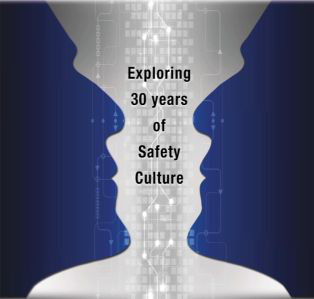Speaker
Synopsis
This invited paper advances a framing context for considering next steps in HOF and organizational culture in light of the presentations and discussions that occur during the conference. Many of the contributions during the conference will represent results of scholarly research, structured investigations or formal organizational improvement efforts. This contribution is intended as informal reflection by a 40 year nuclear veteran on themes from other presentations considering questions such as: "Where do we think we are, Are we better off as an industry based on what we have done, Where do we think we need to go, What do we think we need to do, and Why do we think these things?"
Our coming together on this occasion marks 30 years since the publication of INSAG-l. As we reflect on the past, perhaps it is time to pose a series of questions. Are we sustainers of a mature technology that is in some places declining and being replaced by other energy sources? If we consider nuclear a mature technology, should we focus most on operational excellence with renewed attention to managing the unexpected? Or, is innovation still a vital part of our industry?
After three decades have we fallen into a pattern of true believers chanting mantras about culture and HOF, or are we actively mindful of the organizations we create and inhabit? Do we see safe operations as something to be maintained, or something to be created daily? Are we aware of what it is like to do work, at all levels within the ecosystem?
Have we matured beyond blaming the workers constraining them with ever more prescriptive rules to the point that the very humanity, innovation, and sense of accomplishment through a job well done is literally squeezed out of people’s daily experience? Have we gone beyond the mystique that training, procedures, processes promote perfection; have we begun to recognize, reward and nurture relationships and human interaction as foundational to processes and systems?
With the advent of Big Data do we suffer from quantitative fixation, or measurement myopia? The oft repeated phrase “If you can’t measure it, you can’t manage it” attributed to Peter Drucker is in fact a myth. His quote was the exact opposite: “It is wrong to suppose that if you can’t measure it, you can’t manage it – a costly myth.” He admonished managers: “It is the relationship with people, the development of mutual confidence, the identification of people, the creation of a community. This is something only you can do. It cannot be measured or easily defined. But it is not only a key function. It is one only you can perform.” Are nuclear managers even aware of the significance of subcultures and the uniqueness of each? Do we help managers develop skills of humble inquiry and helping so they can enhance the experience of doing work, as well as the outcomes?
Finally, how do we as a HOF/culture stewardship community perceive ourselves? Are we writers of guidance, analysts, advocates, and sometimes critics? Or do we see ourselves as helping shape the future environment in which new generations of workers in our industry and other high hazard technologies will have different & better experiences of what it is like to do this work? Do we consider the implications of the internet of thing? Likewise do we consider the implications of the values, learning styles and social styles of the Millennial generation? Are we probing how work is changing; can we learn how organizations can manage so that change does not threaten but to the contrary makes life simpler, work more rewarding?
The author William Gibson has suggested that “The future is already here — it's just not very evenly distributed.” Does our field work seek to find out what the future looks like? Should we expand collaborative field research? Should we focus less on workers and more on managing organizations and our ecosystem? Might we better contribute and communicate by freeing ourselves from some of the constraints of traditional academic and institutional information channels and controls? Can we be more foresightful; can we acknowledge that other energy industries and technical domains such as health care have built upon our foundations, may now be innovating beyond our industrial structure models, and engage collaborations that view toward the future rather than seeking to cure the past? The conference wrap up will endeavor to process the contributions of other presenters via the lens of such questions, and seek emerging themes that may suggest a framework for future efforts.
| Country or International Agency | USA |
|---|---|
| Type "YES" to confirm submission of required Forms A and B via the official channels | yes |

